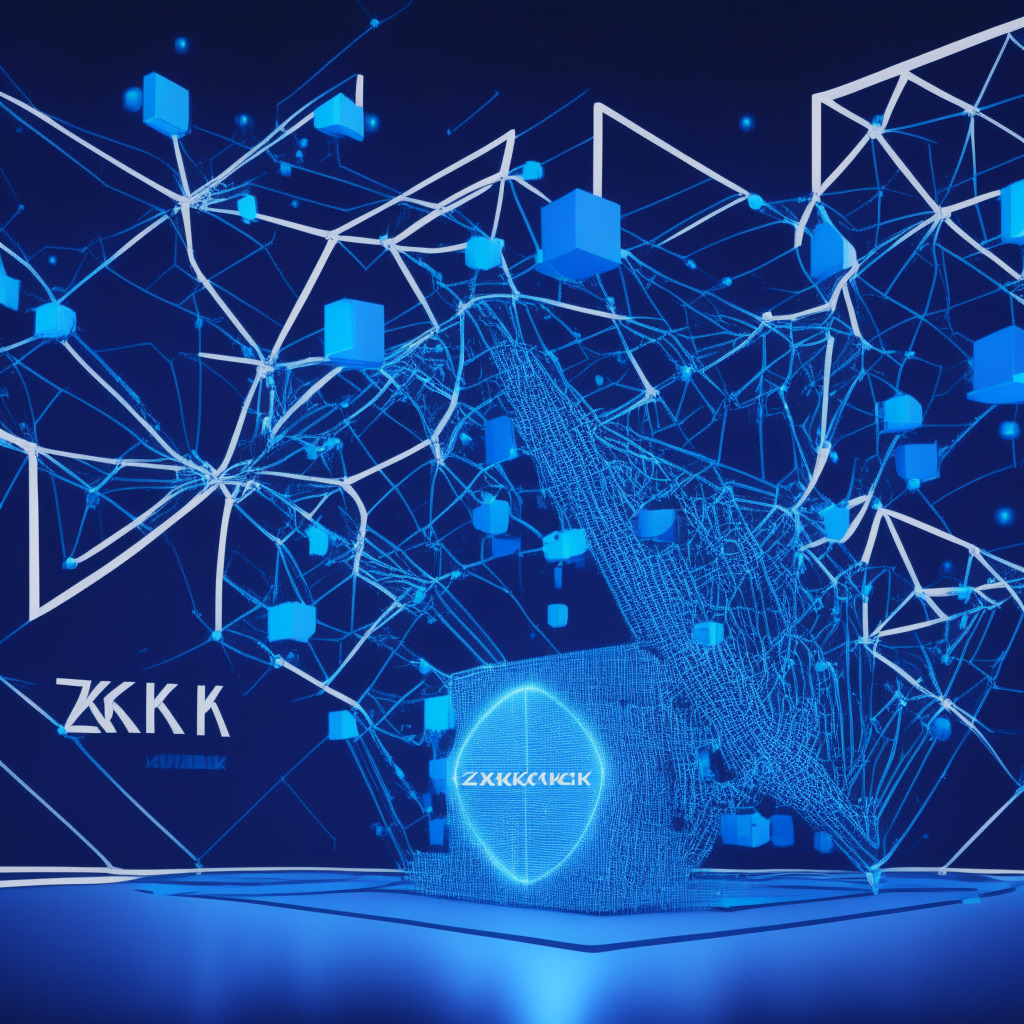“Grab, Southeast Asia’s largest tech startup, has partnered with Circle to bring Web3 services to Singapore through ‘Grab Web3 Wallet’, encouraging the adoption of stablecoins, digital assets, and smart contracts. However, this move comes amidst a market environment filled with regulatory uncertainty, particularly concerning digital currencies, causing us to question whether these technologies will be allowed to flourish or be stifled by regulation.”
Category: Technology
Mauve: A New Dawn in Decentralized Exchanges and Tokenized Real-World Assets
“Mauve, a decentralized exchange, is among the first non-custodial exchanges legitimized as a virtual asset service provider by the Cayman Islands Monetary Authority. The exchange aims to trade compliant, real world assets, thus opening up avenues for secondary markets for on-chain real-world assets such as fixed income securities.”
KBank’s $100 Million Fund: A Leap into the AI, Web3, and Global Fintech Future or Risky Business?
Thailand’s Kasikornbank (KBank) has launched a $100 million fund targeting Artificial Intelligence (AI), Web3, and global fintech startups. With backing from the Bank of Thailand, the fund aims to drive global innovators to advance finance in the APAC region.
Bitcoin Mining Bug Epidemic: Paxos’ Hefty Half-Million-Dollar Lesson and the Industry Response
In the complex world of Bitcoin mining, Paxos, a significant crypto exchange, paid an enormous transaction fee due to a coding bug. The incident has stirred discussions on the correct course of action, highlighting the importance of careful coding and attentive fee management in the evolving cryptocurrency network.
Easing Crypto Entry: The Struggle for Streamlined Onboarding While Retaining Security in Blockchain Applications
Sui Network has integrated Google, Facebook, and Twitch logins into its DApps (decentralized applications), aiming to streamline the onboarding process on Web3 and eliminate the need for managing an external crypto wallet. The new zkLogin (Zero Knowledge login) feature ensures user privacy and security, essential characteristics in Blockchain applications.
Ground-breaking Partnership: Circle and Grab Aim to Introduce Web3 Wallet in Singapore
Circle Internet Financial, the company behind the USDC stablecoin, is partnering with global ride-hailing platform Grab to introduce a Web3 blockchain-based wallet in Singapore. The “Grab Web3 Wallet” will enable users to earn rewards and collect non-fungible token (NFT) vouchers, integrating digital assets into Grab’s existing services.
Understanding the Real Metaverse: Beyond Meta’s Bubble and Towards Community-Driven Platforms
“Yuga Labs’ CEO Daniel Alegre critiques Meta’s interpretation of the ‘metaverse,’ which he believes fell short of user expectations. He highlights platforms like World of Warcraft and Fortnite that successfully built engaging metaverses, compared to Meta’s unremarkable Horizon Worlds. Alegre explains the importance of user community input in shaping successful metaverse projects and the divergent, evolving roles of nonfungible tokens (NFTs).”
Unveiling the Islamic Coin Partnership: A Revelation or Risky Crypto Disco Dance?
Islamic Coin and CoinDesk Indices have partnered to create Shariah-compliant crypto benchmarks in Middle East and North Africa markets. This collaboration aims to blend traditional ethics with modern financial systems, though reconciling these with crypto’s fluctuating values presents challenges.
Navigating Blockchain Waves: Sony Leads the March of Japanese Firms into Web3 Future
“Japanese electronics titan, Sony, is reportedly focusing on developing a blockchain network in collaboration with Singapore-based Startale Labs. Sony’s IT subsidiary will pivot from IoT to the blockchain sector, aiming to propel Sony’s blockchain technology beyond established giants. This initiative could potentially create a global infrastructure powerhouse for the Web3 era.”
Unlocking the Future of Card Gaming: The Advent of ‘Sealed Mode’ in Gods Unchained
The web-based game Gods Unchained introduced a ‘Sealed Mode’, replicating traditional card games structures and rewarding skills over card collections. This attests to the convergence of traditional gaming and blockchain technology, fostering innovation in the increasingly digital sphere.
Harnessing the Power of AI in Cryptocurrency: A Deep Dive into RNDR, Fetch.ai, and yPredict
“The blending of AI and cryptocurrencies like the Render Token and Fetch.ai projects leverage machine learning and blockchain technology, optimizing efficiency, and creating new opportunities. However, remember investing in crypto carries potential risk of capital loss.”
Unraveling SWIFT’s CBDC Interoperability Project: A Leap or a Challenge for the Financial World?
“SWIFT has invited three central banks to participate in its central bank digital currency (CBDC) interoperability project, currently in beta phase. Amid concerns about CBDCs rivalling established platforms, SWIFT’s collaboration could shape the future landscape of digital currencies and finance.”
Navigating the Tides of Change: Google’s Green Light and the Unpredictability of the NFT Sphere
Google has greenlit advertisements for NFT games, providing a new visibility avenue for decentralized games. However, this decision excludes games promoting gambling. Insurance giants display caution towards NFTs while a security breach raises safety concerns. Meanwhile, geographical adoption of the Metaverse shows contrasting trends between the East and West.
Opera Mini Harnesses the Power of Blockchain with MiniPay: Reshaping Africa’s Mobile Payment Landscape
Opera Mini has announced a partnership with Celo Blockchain to launch a non-custodial wallet, named MiniPay, integrated into its mobile browser. With the ability to perform transactions using only a phone number and support for local payment methods, MiniPay is designed to transform mobile payments particularly in Africa.
Unraveling the Upgrade: Cosmos Hub’s Liquid Staking and its Implications for ATOM Stakeholders
“Cosmos Hub has introduced an upgrade, bringing in a liquid staking module for ATOM stakeholders. This eliminates the previous 21-day lock-in period after unstaking, allowing staked ATOM to be used in the Cosmos DeFi ecosystem. This change could free over $400 million of ATOM for liquidity purposes, potentially boosting staked ATOM within Cosmos-run protocols. However, the upgrade also implies adjustments in inflation rates and brings new limitations for ATOM holders in liquid-staking.”
Unveiling the Renaissance of Asia in Cryptocurrency’s Tech Arena: A Paradigm Shift or the Prelude to a Tech Rivalry?
“Ethereum co-founder, Vitalik Buterin, highlights Asia’s increasing mastery over blockchain technology, evident in its active participation in developing ‘account abstraction’ or ERC-4337. This shift towards technical involvement in the blockchain from Asian contingents marks a significant change in the global blockchain landscape.”
Coinbase Embraces Lightning Network: A Leap towards Expedited Blockchain Transactions
Coinbase’s CEO, Brian Armstrong, has confirmed plans to integrate the Lightning Network – a Bitcoin-based payment system that promises faster transaction processes – into their services. Armstrong’s support for Bitcoin and this integration reaffirms his stance on Bitcoin being “the most important asset in crypto.”
Ethereum’s New Holesky Testnet: A Step Towards Optimized Network Scalability and Enhanced Testing
Ethereum is set to unveil a new testnet, Holesky, which promises larger capacity than its existing networks, Sepolia and Goerli. The new testnet aims to address potential scaling issues and accommodate more extensive testing for Ethereum’s growing developer community. Named after a Prague train station, Holesky’s significant size would provide a realistic environment for infrastructure and core protocol upgrade testing, targeting to enhance Ethereum’s resilience against unexpected obstacles.
Navigating the Future: Exploring Recent Advances and Challenges in Blockchain and Crypto Industry
“BNB Chain developers launched opBNB’s mainnet, aiming to address blockchain’s congestion and high transaction costs. Nansen presented an AI-powered upgrade of its platform to track suspicious trades and monitor transfers. Ripple plans to hire internationally due to regulatory dissatisfaction. Telegram and TON Foundation announced a self-custodial crypto wallet, TON Space, while Opera launched a non-custodial stablecoin wallet in Africa.”
Blending Traditional Finance with DeFi: MetaComp’s Bold Game-Changer in Singapore’s Financial Scene
“MetaComp, Singapore’s digital asset platform, combines traditional finance with decentralized finance, allowing customers to purchase traditional securities with stablecoins. Despite some skepticism due to crypto volatility, the firm believes that fiat-pegged cryptocurrencies will penetrate the real economy.”
Adapting to Crypto Winter: Alchemy’s New Affordable Payment Plan for Tech Developers
Blockchain infrastructure provider, Alchemy, has introduced a new affordable payment plan, “Alchemy Scale Tier,” aimed at providing financial relief to developers building applications for blockchains amid the economic pressures of the crypto market. Offering flexible pricing, the plan encourages continued development despite ongoing market turbulence.
The Rollercoaster Ride of DAOs: Marvel of Decentralization or Havoc Waiting to Happen?
“Decentralized autonomous organizations (DAOs) manage a massive $17.2 billion in value. However, DAO governance is filled with numerous failures, underlining the need for improved DAO infrastructure and governance. Challenges of balancing decentralization and efficient product-market fit persist. Tools like Senate and Goverland aim to integrate DAO voting into single platforms, enhancing participation.”
OpBNB’s Public Launch: Evaluating BNB Chain’s L2 Scaling Solution and its Effect on the Ecosystem
“BNB Chain’s Ethereum-compatible L2 has gone public after successfully testing its Optimism-powered layer 2 scaling platform. Aimed at providing lower gas costs and faster transactions, it displayed potential but not without some concerns, such as the week-long fund lockup during verification checks. Despite potential drawbacks, BNB Chain’s progress towards a swift, secure, and economical opBNB platform is laudable.”
Coinbase CEO Confirms Lightning Network Integration: A Strategic Move to Enhance Transaction Efficiency
Coinbase CEO, Brian Armstrong, recently announced the firm’s plan to bring the Bitcoin Lightning Network into its operations. This second-layer solution improves transaction speeds, enabling competition with more efficient solutions. Coinbase’s move is expected to give them a competitive advantage in the increasing crypto market competition.
Unfolding the Future of opBNB: Layer-2 Protocol’s Promise Amid Market Competition
“BNB Chain developers launched opBNB, a layer 2 protocol enhancing Ethereum’s functionality. The protocol successfully processed 4,000 transactions per second (TPS), significantly higher than Ethereum’s 17 TPS limit. Despite facing a competitive blockchain market, BNB Chain plans network activities and airdrop incentives to attract initial users to the robust, fledgling network.”
Komainu and Hidden Road Partnership: Elevating Trust in Crypto or Fueling Centralization?
“Institutional investors and partnerships may significantly inspire trust in the crypto industry. The recent alliance between Komainu and Hidden Road engages a secure, regulated custody platform, opening the digital asset marketplace to secure transactions and fostering industry growth and longevity.”
Opera’s New Step into Blockchain: Introducing MiniPay Stablecoin Wallet in Africa
Opera plans to launch a non-custodial stablecoin wallet, MiniPay, in Africa. This wallet, built on the Celo blockchain, allows users to send or receive stablecoins using their mobile numbers. However, concerns about high fees and unreliable service remain. MiniPay will only support Celo Dollar, aimed to prevent user confusion with multiple currencies. Despite the recent downturn in fintech, the blockchain sector maintains resilience in Europe.
Unveiling the Future: How Polygon’s $1 Billion Bet on ZK-Rollups Revolutionizes Blockchain Technology
Polygon co-founder Sandeep Nailwal believes strongly in the potential of zero-knowledge proof (ZK-proof) technology for Ethereum scaling, as evidenced by allocating $1 billion towards its development. Nailwal proposed a unified scalability system where recursive ZK-proof technology merges different blockchain ZK-proofs into a common layer, dramatically improving cross-chain transaction times.
Is PayPal’s Ethereum-based Stablecoin, PYUSD, Truly 100% Asset-Backed? Examining the Claims
“PayPal’s Ethereum-based stablecoin, PYUSD, has full asset backing, primarily from U.S. Treasury reverse repurchase agreements, says Paxos. Though overcollateralization safeguards assets, it could limit profits. Some PYUSD assets are in uninsured cash deposits, reflecting typical banking risks. PYUSD’s transparent operation may soothe some investors while raising others’ skepticism.”
Feasibility of Central Bank Digital Currencies: Breaking Down the Findings of Project Sela
“Project Sela, a joint initiative led by BIS, and the central banks of Hong Kong and Israel, points to the feasibility of CBDCs settling on centralized ledgers while ensuring privacy. Addressing cost factors and potential risks, it put forth an efficient solution, ‘Access Enabler,’ that allows network settlement without merchants retaining users’ CBDC. This opens a promising pathway for digital currencies to potentially become a universally accepted retail payment form.”
Bridging the Gap: Emurgo’s Bold Move to Strengthen Cardano’s Blockchain Ecosystem
“Emurgo, a key contributor to Cardano blockchain, plans to address identified gaps within the ecosystem. The focus will be on incorporating decentralized identity (DID) solutions and layer-2 sidechains. Additionally, Emurgo explores zero-knowledge rollups and optimistic rollups, while acknowledging challenges in developer experiences due to specialized programming knowledge requirements. The outcomes of Emurgo’s efforts remain to be seen.”
Unmasking the Future of Blockchain: Highlights and Controversies from Korea Blockchain Week
“In last week’s Korea Blockchain Week, Web3 and token technology overshadowed traditional blockchain and cryptocurrency dialogue. Many envisioned Web3 as the new internet or evolution of token-based protocols. However, the event spotlighted several challenges, including low public interest and adoption, which the industry must swiftly address to thrive.”































